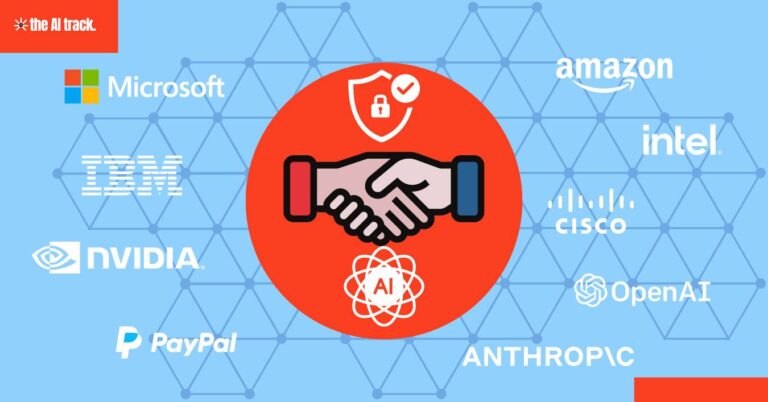Amazon Web Services – AWS and General Catalyst has teamed up to launch an AI-powered healthcare initiative aimed at transforming global healthcare delivery. Announced on January 13, 2025, this collaboration merges AWS’s advanced technological capabilities with General Catalyst’s extensive experience in healthcare investments. The goal of the partnership is to integrate AI solutions into various facets of healthcare, focusing on predictive and personalized care, improving operational efficiency, and enhancing patient engagement.

AWS and General Catalyst Join Forces – Key Points
Key Objectives and AI Applications
The core ambition of the initiative is to create AI-driven tools that can tackle the pressing issues in healthcare. AWS and General Catalyst outlined several key areas of focus:
- Predictive and Personalized Care: The partnership aims to develop AI models capable of processing a wide array of health data, such as radiology and pathology scans, genomic sequencing, and clinical trial data. These models are designed to assist doctors in identifying disease patterns, diagnosing conditions, predicting treatment outcomes, and monitoring disease progression.
- Interoperability: One of the significant challenges in healthcare is the lack of seamless communication across systems. This initiative seeks to enhance interoperability, enabling more efficient data exchange and better decision-making in patient care.
- Operational and Clinical Efficiency: AI solutions are being designed to streamline healthcare processes, potentially reducing administrative burdens, improving resource management, and enhancing patient care delivery.
- AI-Powered Diagnostics and Engagement: The collaboration will focus on building AI tools that can assist with diagnosing diseases early, providing personalized treatment recommendations, and engaging patients in their healthcare journey.
Generative AI’s Role in Healthcare
Generative AI technologies will be central to the partnership’s success. AWS intends to leverage tools like Amazon Bedrock and collaborate with AI organizations such as Anthropic and Mistral AI to build specialized, secure, healthcare-specific AI models. These generative AI models have the potential to revolutionize healthcare by processing vast amounts of health data to improve outcomes and enhance decision-making across the care continuum.
One of the examples provided highlights how disease-specific AI models can utilize diverse health data sources to help doctors and researchers understand patterns, make more accurate diagnoses, and predict treatment responses. The ability to process such varied data sets, including genomic information and electronic health records (EHR), could lead to more precise and personalized care.
Proactive Healthcare
PYMNTS CEO Karen Webster discussed the transformative potential of generative AI in healthcare, suggesting that it could shift the focus from reactive to proactive care. With generative AI, doctors could detect early signs of illness before symptoms appear, leading to a more preventative approach to healthcare. This change in mindset would not only improve patient outcomes but also significantly reduce healthcare costs.
The evolving role of AI will also lead to smart-technology-driven patient interactions, where AI tools provide personalized insights and guidance to patients, empowering them to take control of their health. This shift could make healthcare a more patient-first experience, utilizing technology to prevent illness and optimize care.
Economic Impact
The economic implications of AI in healthcare are significant. According to PYMNTS, U.S. healthcare costs reached nearly $5 trillion in 2023 and are expected to rise to $7.7 trillion by 2032. The rising cost of care, combined with an increasing number of patients delaying or forgoing medical treatments due to financial constraints, underscores the urgency of finding more sustainable solutions.
By using intelligent monitoring devices and AI-driven personalized health insights, this partnership aims to lower the cost of managing chronic diseases. Remote monitoring and medication management are expected to play a critical role in preventing expensive medical crises, ultimately reducing long-term healthcare expenditures and enhancing the quality of life for patients.
Long-Term Vision
In the long term, the AWS and General Catalyst partnership envisions that AI can shift the healthcare landscape by enabling more efficient and affordable care. The integration of AI in predictive modeling, personalized healthcare, and operational efficiency could unlock new potential in global health systems. Both AWS and General Catalyst are determined to address the current inefficiencies in the healthcare sector while paving the way for a future where technology not only supports but enhances human health.
In summary, the collaboration between AWS and General Catalyst represents a bold step toward transforming healthcare with AI. By combining AWS’s cloud and AI capabilities with General Catalyst’s investment expertise in healthcare, this partnership is poised to play a pivotal role in shaping the future of healthcare delivery, making it more accessible, efficient, and patient-centered.
Source
- AWS and General Catalyst join forces to transform health care with AI | General Catalyst
Discover the pivotal role of AI in healthcare, from enhancing workflow efficiencies to facilitating personalized medicine, AI is revolutionizing medical practices
Read a comprehensive monthly roundup of the latest AI news!







